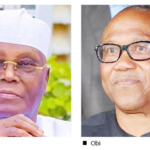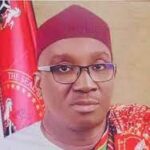Ashish J. Thakkar is a citizen of Uganda who recently launched the first android phone to be manufactured in Africa christened Mara. According to the GSMA Mobile Economy Sub-Saharan Africa Report 2017 “the region had reached 731 million SIM card connections, with the expectation of reaching 1 billion by 2020. The report adds that “Mobile phones created US$110 billion in economic value for Sub-Saharan Africa in 2016, 7.7% of the region’s GDP”. Nigeria accounts for a huge chunk of that market currently outpacing South Africa, Egypt and Kenya in subscriber base. In June 2018 the Nigerian Communications Commission (NCC) Executive Vice Chairman Umar Danbatta at the Nigerian Internet Governance Forum put the number of internet users in our dear country as 103 million, an astronomical rise from less than 20 million internet users through smartphones before 2010. Jumia, Nigeria’s largest online retailer, in another report claimed smartphone sales on their platform increased by 394% between 2014 and 2016 with average prices dropping from US$216 to US$117 in just 2014.
The promoters of the Mara smartphone claim that their flagship product aims “to be a low cost, high quality and super-efficient android phone tailor made for the African continent”. One does not need to be a soothsayer to discern that the Nigerian market has a huge potential for the Mara phone. If so why is Mr. Thakkar not a Nigerian? The answer might not be unconnected with Ben Murray Bruce’s Tweet of 11.21pm, August 29th 2017 “When I was a kid in the 60s, the Saudi royal family came to UCH (Ibadan) for treatment”. What the outgoing senator tweeted was a parody on the country Al-Sauds preferred to come to for medical tourism but is now at the bottom rung of over 180 countries in health care delivery – a country where the Health minister (himself a doctor) openly declared that not all the nation’s doctors could be specialists. Suggesting they stray into either farming or tailoring! From around the time the Al-Sauds were being treated in Ibadan in 1963 to date the Medical and Dental Council has registered over 80,000 doctors to practice in Nigeria. Currently the WHO recommends 1 doctor to 600 patients but in Nigeria it is still at a doctor to 3500 patients as there are 4765 of our compatriots practicing medicine in the UK alone as figures from the General Medical Council clearly show.
How long ago was Nigeria virtually the only oil producing nation in Black Africa when our nation played a “Father Christmas” role across the continent? Today neighboring Niger, Tchad and Cameroun among many others including Ghana, Angola and Uganda have become crude oil exporters. It as if providence decided to bless the rest of Africa since we couldn’t sustain our “Giant of Africa” status. Once upon a time in Africa the Francophone countries on the continent could not even afford to have national carriers but had to pool their meager resources into Air Afrique. That was when state of the art Nigeria Airways aircraft were flying across the Atlantic daily. Today the closest thing Nigeria has to a national carrier is a logo and vague promises from prospective investors.
On May 10 1985 close to a million fellow Africans were expelled from Nigeria for being illegal immigrants. They had gravitated to Nigeria for work and economic opportunities. Half were Ghanaians. They were not allowed to depart with more than N22. Today Nigerian traders are in Ghana and the rest of Africa are exactly in the same shoes as the Thakker family who were expelled from Uganda. The vicissitudes of the Thakkar family that emigrated from Gujarat in India in the 1890s to settle in Africa goes to prove that business acumen transcends any immigrant-indigene-settler dichotomy. Ashish’s parents were thrown out of Uganda by Field Marshal Idi Amin in 1972 but returned under Yoweri Museveni. At 15 Ashish dropped out of school to compete against his father from a shop just across the street in Kampala. The teenager started out with a family loan with computer accessories and printing consumables. Now he is manufacturing the Mara X and Mara Z in South Africa. That notwithstanding the business trajectory of Asish Thakkar is no different from any young Nigerian “apprentice” that serves under a “master” before “freedom”. The only difference is that Nigeria unlike Uganda according to Chinweizu is a Noyau. Which the single named writer defines as a “nation of inward antagonism, one which couldn’t carry on if its members had no fellow members to hate”.
It is ironical that in Africa’s most populous country almost six decades after national independence many Nigerians cannot freely carry out business dealings and comfortably reside in any part of the 36 states therein without fear of inter-communal hostility. Then there is what Chinua Achebe describes as “the trouble with Nigeria” which in his own words he puts as “simply and squarely the failure of leadership”. But are our ethnic and religious differences not wrongly premised and therefore deliberately mischievous and self-serving? Dr. Yusuf Bala Usman seriously thinks so and in his must read 2000 treatise entitled ‘The Misinterpretation of Nigeria: The Facts and the Figures’ he emphatically says so.
That the Mara smartphone will give the avalanche of Chinese phones that have flooded Nigeria a stiff competition in is obvious. Unfortunately our nation will continue to be a trading post economy. And a dumping ground. Are there no Nigerian manufacturers can give Mr. Thakkar a good run for his money? Yes but to be an industrialist in Nigeria is like being a combined victim of the depravity of arbitrary government revenue collection, infrastructure nightmare and Chinese economic imperialism. There is also a well-entrenched banking industry machination to contend with. Ask Innocent Chukwuma of Innoson Motors.
An OPEC nation that is the 7th largest crude oil producer in the world with close to 200 million people which still imports virtually all its Premium Motor Spirit, safety matches and tomato paste cannot muster the kind of entrepreneurial will to manufacture smartphones. Mr. Thakkar rolled out the Mara phone from an investment portfolio of US$100 million. Yet in the EFCC through its acting Chairman Ibrahim Magu declared at the 7th Session of the Conference of the States Parties to the United Nations Convention Against Corruption that held in November, 2017 at Vienna that the anti-graft body had recovered loots totally an equivalent of US$2.9 billion between May, 2015 and October, 2017. Why a fraction of this recovered loot cannot be allocated to deserving Nigerian entrepreneurs to create jobs is mind boggling. Is it because of what the historian Max Siollun describes as the “kleptocratic self-importance” of Nigeria’s public officials whose penchant for warehousing looted funds from the “national cake” on behalf of “their people” is well known? It is just be a question of time before Mara smartphones flood the ever pulsating Nigeria market. But for Nigeria to join the league of manufacturers it has to be a welcome destination for business. The challenges militating against that are well known. The million Naira question is what are we doing about such? The kind of change we truly need cannot come from just elections. Business innovators must take precedence over political actors in Nigeria. Leadership at government level should restrict itself to providing the enabling environment for just that.
Yahaya Joe wrote this piece from Wusasa, Zaria

 Join Daily Trust WhatsApp Community For Quick Access To News and Happenings Around You.
Join Daily Trust WhatsApp Community For Quick Access To News and Happenings Around You.


